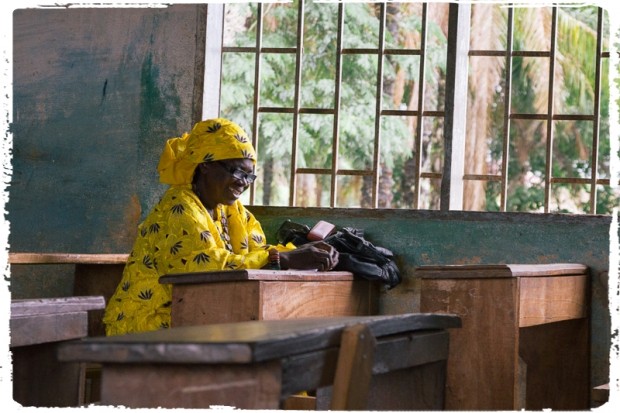This week I’ve heard two conflicting testimonies concerning African languages…from Africans.
On the car ride back from a village visit yesterday a brother remarked, “Ma langue est pauvre” (My language is poor). What sparked the comment was a conversation we were having about borrowed words in his language. They’ve borrowed words such as tabili (table) from either English or French. He presumed that such gaps in his mother tongue signaled poverty, a poverty of vocabulary as if it were somehow shameful to grab and adapt another’s word for a household object. Borrowed words are often a point of contention. When languages borrow words, it’s for keeps. They don’t give them back. And language communities sometimes fear that by translating using a word other than of their own origin their language may die out in the future as a result. Such fears based on borrowing are generally unfounded although the desire to preserve one’s own language is commendable. The truth is every language borrows words and remarkably after all these years of borrowing, we continue to find creditors. Secondly, it’s testimony to the adequacy of a given language if the language community continues to use it rather than tossing it to the side like an outmoded tool that’s no longer needed. Who cares if you need to borrow a word like table? English certainly has no shortage of borrowings. We all need a lending hand from time to time.
Contrast the “ma langue est pauvre” view with the richness of African expression. Daily I encounter sayings and proverbs whose meaning largely escapes me. It’s only after hearing the patient explanation of a brother or sister that I begin to grasp the sense. Yesterday, some brothers were laughing about the use of the word “bee” in their language. They pointed out that when one normally thinks of a bee, what comes to mind is either getting honey or getting stung. They then went on to add that “bee” is also a term of derision for a drunkard. We laughed about the lack of obvious connection.
The contrast is as great between the richness of African languages and their often-supposed “lexical poverty” as is the contrast between my sister pictured above dressed pretty in yellow and the “poverty” of paint in the classroom where she sits. She sings quietly to herself in her heart language. Her smile is contagious. Her soft melody and yellow vibrancy call out from against the earth tones of the weathered classroom. She beams as she hymns her savior. How could one approach such a sunny sister only to tell her that her language is impoverished, parochial or impaired? Her tongue tells a different story. Each language is rich.


CommentsOnToast